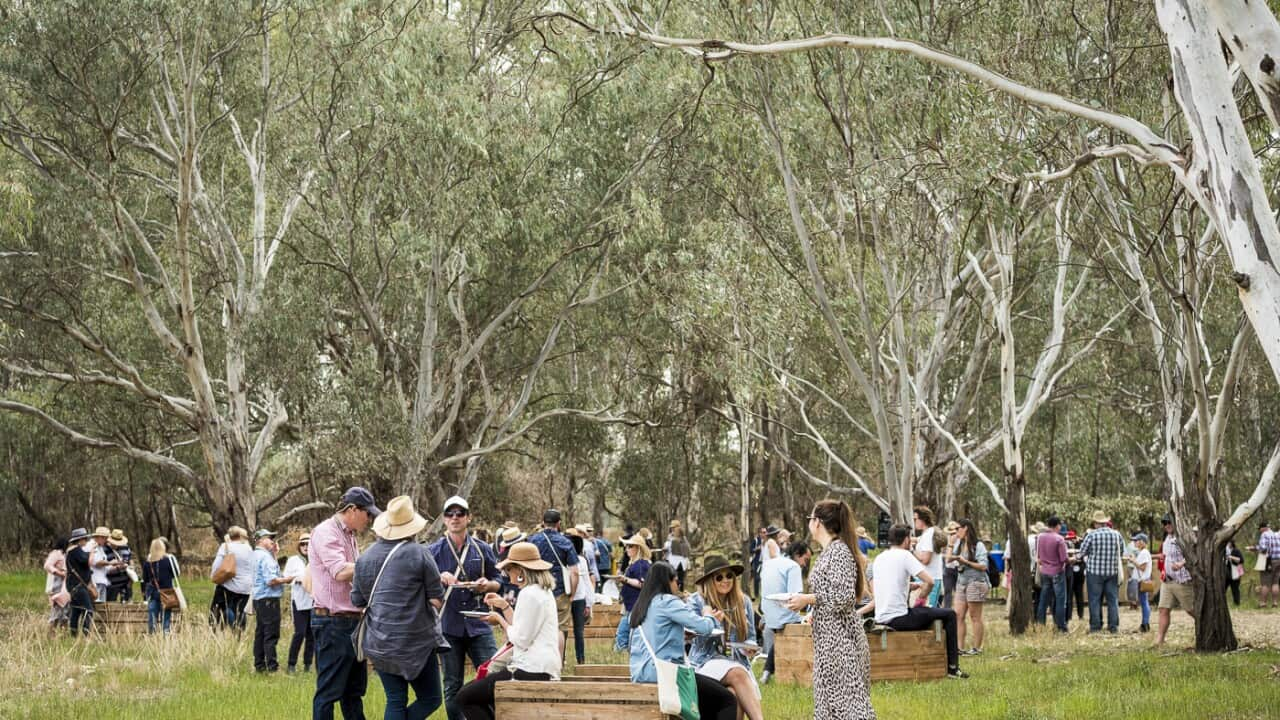Options are manifold if you’re looking for dinner in ethnically-diverse Auburn. But between Arabic bakeries and Turkish kebab shops is a restaurant that has people regularly flocking: .
Khaybar’s pulling power is that it does not try to impress anyone in particular. It’s not subscribing to a ‘look’ or a trend. Instead, the restaurant happily dishes up family recipes that have nailed the test of time.
As a result, Khaybar has quickly earned the tick of approval from Sydney’s Afghan community. And rightly so; brothers Mujtaba and Mustafa Ashrafi whip up large meals created by ancestors who were honoured cooks in the tiny Kabul neighbourhood of Chand Awal.
"We left Afghanistan in 1989," says Mustafa. “We spent time in Pakistan and Iran but decided that Australia had far more opportunity.” Despite leaving their home, the family occupation prevailed and with their mother’s careful oversight, their secret spice combinations lived on.
For starters, try at least one of the three types of bulanee, a popular Afghan 'turnover' (fried flat bread) folded with chives or potatoes. For mains, the qaboli pallaw is compulsory: basmati rice with carrots, raisins, nuts, secret spices and either lamb or chicken, known far and wide for its delicate, fragrant flavours. If you’re looking for a vegetarian option, buranee-badenjan is a sauteed eggplant and yoghurt dish that has been prepared this way for centuries.
For mains, the qaboli pallaw is compulsory: basmati rice with carrots, raisins, nuts, secret spices and either lamb or chicken, known far and wide for its delicate, fragrant flavours. If you’re looking for a vegetarian option, buranee-badenjan is a sauteed eggplant and yoghurt dish that has been prepared this way for centuries.

Bulanee Gandana is an Afghan flatbread turnover filled with vegetables and herbs. (Khaybar) Source: Khaybar
Believe it or not dumplings are an important part of the Afghan feast. There’s mantu, steamed beef dumplings with garlicky yoghurt, bean sauce and freshly ground coriander, or the vegetarian ashak, which are boiled. Add a glass of dogh on the side. It's a thick, natural yoghurt drink with spices, and certainly an acquired taste. "If you compare this to Turkish and Arabic yoghurt drinks, you'll find it saltier and more savoury," Mustafa explains. Yoghurt is a big deal in Afghanistan. "It's perfect in summer. Back home we'd sit in the shade with three or four families and make a massive yoghurt dip with bread, sultanas, walnut, cucumber and onion. It's a national drink here."
Add a glass of dogh on the side. It's a thick, natural yoghurt drink with spices, and certainly an acquired taste. "If you compare this to Turkish and Arabic yoghurt drinks, you'll find it saltier and more savoury," Mustafa explains. Yoghurt is a big deal in Afghanistan. "It's perfect in summer. Back home we'd sit in the shade with three or four families and make a massive yoghurt dip with bread, sultanas, walnut, cucumber and onion. It's a national drink here."

Qaboli Pallaw, Khaybar's most famous dish, is made of rice, lamb, and sauteed carrots, nuts and raisins. Source: Khaybar
Desserts are also central in Afghanistan's hospitality rituals. Lighter than sweets of other cuisines, Khaybar's menu showcases keshmesh paneer, a strained cheese made in-house with sultanas; , an Afghan milk-fudge with nuts, rose water and cardamom; and the old favourite, baklava.
The spacious restaurant yearns for families and groups (the way Afghan food should be shared). Or you could go in with a friend and stare, intrigued, at photo-canvases of rugged, Northern Afghanistan landscapes and candid food scenes that fill the walls, captured by photographer Mohammed Musa Akbari.
These days, it’s not as hard to find Afghan cuisine in Sydney, but many places have a clinical, 'restaurant' feel about their menus. At Khaybar, it's all food that would be served in their Afghan home. "We don't do meat scraped off a rotisserie here," Mustafa says.
is open 11am-9.30 pm, Sunday to Thursday, and 11am-10.30pm on Friday and Saturday. 64 Auburn Rd, Auburn, NSW 2144. 8084 7805




